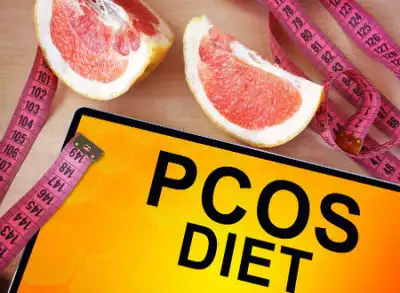A Diabetic Patient's Diet Plan in Hyderabad: The Ideal Blood Sugar Balance!
It can be difficult to manage diabetes, but you can naturally regulate the sugar in your blood and improve your health with the correct dietary habits. To effectively manage their condition, patients with diabetes must follow a well-planned diet chart.
You can maintain control over your blood sugar levels and still enjoy delectable meals by choosing wise foods and adhering to a balanced diet.
The insightful information provided in this article will empower you to take charge of your health and enhance your general well-being, regardless of how long you've had diabetes. Now let's get started!
Diabetes: What is it?
When we have diabetes, we have abnormally high blood glucose, also referred to as blood sugar. However, how does this illness develop? Blood glucose is our primary energy source and is obtained from food.
Now, the pancreas secretes the hormone insulin, which helps cells absorb glucose and use it as fuel. However, occasionally, our bodies are unable to make enough insulin or utilize it correctly. Because of this, glucose does not enter our cells and stays in our circulation, increasing blood glucose levels and leading to high blood sugar.
Diabetes is a long-term condition that affects the way your body controls blood sugar levels, even though blood sugar is simply the amount of sugar that exists in your blood. Learn the differences between diabetes and blood sugar as well as how they are related by reading this blog.
Diabetes Symptoms and Types
Diabetes is a long-term illness that impairs the body's capacity to control blood sugar levels. Diabetes comes in various forms, the most prevalent being types 1 and 2. Let's talk about:
The body's immune system mistakenly targets and kills the pancreatic cells that produce insulin, resulting in type 1 diabetes. As a result, there is insufficient insulin, a hormone required for the metabolism of glucose. To control their blood sugar levels, individuals who have type 1 diabetes need to use an insulin pump or injections. To manage this condition, they also need to adhere to a Type 1 diabetes chart diet plan.
Insufficient or resistant insulin production leads to the development of Type 2 Diabetes. Numerous lifestyle factors, including obesity and sedentary behaviour, are linked to this type of diabetes. Medication may help manage it occasionally, but diabetic diet plan To regulate blood sugar levels, type 2 is essential.
The connection between PCOS and diabetes
Diabetes dietician Rukhsana Azhar explains that small cysts that develop on the ovaries are a common symptom of PCOS. Menstruation, fertility, and ovulation may all be impacted by these cysts. Hormone imbalance, involving the hormone insulin, is linked to PCOS.
The body's capacity to produce or use insulin is impacted by diabetes. Insulin resistance leads to the development of type 2 diabetes, whereas a shortage of this hormone causes type 1 diabetes. Insulin production may decrease, and the hormone's efficacy may also decline. Type 2 diabetes may develop as a result of lifestyle choices.
Those who are obese or overweight are typically the ones who develop type 2 diabetes, which is far more prevalent than type 1.
Studies indicate that there may be a higher chance of type 2 diabetes in individuals with PCOS. Insulin resistance is associated with a higher risk of developing this kind of diabetes in individuals with PCOS.
Numerous pieces of evidence suggest a connection between diabetes and PCOS:
· Roughly half of PCOS patients get prediabetes or develop diabetes before turning 40, based on the Office on Women's Health Trust Source.
· According to a 2017 study, the risk of type 2 diabetes in PCOS patients is four times higher than in their counterparts without the condition.
· According to a study involving about 8,000 women, PCOS patients were far more likely to develop type 2 or gestational diabetes. The findings, according to the researchers, were unaffected by body mass.
· A 2016 review states that numerous other studies have discovered a connection between PCOS and type 2 diabetes.
The precise etiology of PCOS is unknown to medical professionals, who are into Diabetes diet consultation in Hyderabad. On the other hand, physicians think that elevated insulin levels might be involved. The risk of type 2 diabetes can also rise with elevated levels of this hormone.
A prevalent risk factor for type 2 diabetes and PCOS is being overweight.
Overweight or obese individuals make up the bulk of those with this kind of diabetes.
Nonetheless, despite their weight, food, and level of exercise, some of the aforementioned studies indicate that individuals with PCOS are strongly predisposed to resistance to insulin and type 2 diabetes.
Gestational diabetes is another condition that increases in risk for women with PCOS when they become pregnant.
In general, diabetes screenings should be routine for women with PCOS.
Understanding the warning signs of diabetes, which include:
· Exhaustion (Fatigue)
· hazy vision
· a constant urge to urinate
· nocturnal frequent urination
· heightened desire
· heightened appetite
· patches of skin, particularly dark ones
· wounds that take a long time to heal
· feeling numb in the feet or hands
How to manage PCOS and diabetes with the help of Dietitian Rukhsana Azhar from Diet4u Wellness ?
In order to address diabetes and PCOS, Dietician Rukhsana Azhar typically advise maintaining a healthy diet and engaging in regular exercise.
A nutritious diet plan for diabetes includes:
· vibrant fruits and vegetables
· fish, turkey, low-fat dairy, and chicken breasts are examples of lean protein sources.
· healthy fat sources, such as almonds, seeds, and olive oil
· entire-grain meals
Individuals who have diabetes and PCOS should restrict their consumption of foods like:
· processed meats
· trans fats
· simple carbs, like those found in sugar, white rice, pasta, bread, and flour
· processed foods, including fast food
· foods low in fat that use sugar in place of fat
Increased exercise is beneficial for those with PCOS, diabetes, or prediabetes as well. Increasing one's physical activity level can aid in weight loss or helping one maintain an appropriate weight. Moreover, blood glucose, also known as blood sugar, can be more easily absorbed and utilised by the body.
An individual's body may generate enough insulin as it begins to process more blood glucose. A diabetic may require less medication because the body naturally controls blood glucose levels.
Medication that lowers blood glucose levels and improves the body's ability to use insulin is one method of treatment for type 2 diabetes. Insulin injections may also be suggested by a physician.
Taking birth control pills is a common treatment for PCOS. These may lessen the symptoms of PCOS by regulating hormone levels and the menstrual cycle.
One popular medication for type 2 diabetes is metformin. Because it lowers insulin resistance, it might also aid in the treatment of PCOS symptoms.
How do PCOS and diabetes impact getting pregnant?
According to Diabetes dietician Rukhsana Azhar from Diet4u Wellness, women with PCOS who become pregnant should discuss more regular gestational diabetes testing with their physicians. These researchers found that women with PCOS had a higher risk of developing gestational diabetes.
Nevertheless, there was no connection discovered by the authors of a more contemporary trusted Source, which involved over 1,100 participants, between PCOS and gestational diabetes. The scientists discovered that obesity and advanced maternal age were indicators of risk for gestational diabetes.
Nevertheless, a pregnant woman with PCOS/PCOD must discuss the possibility of developing diabetes with her physician. The optimal screening rate for each patient will be decided by the physician.
Preterm birth, hypertension, preeclampsia, pregnancy loss, and other pregnancy complications are among the risks that women with PCOS are more likely to experience.






